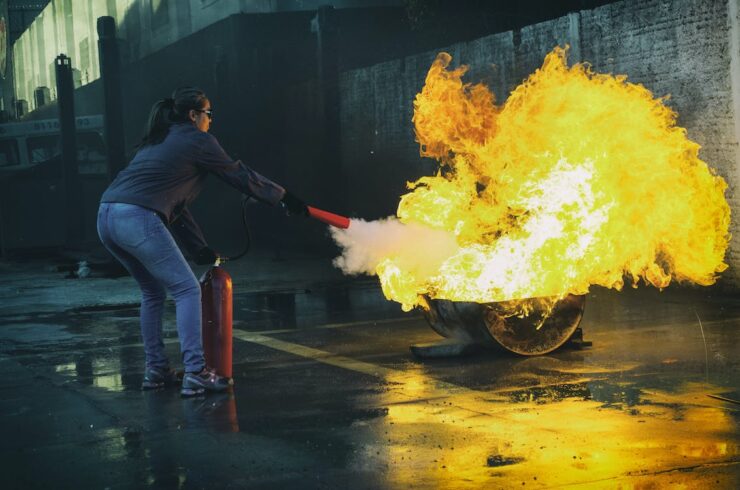Having fire extinguishers is a must at any workplace. However, before you buy fire extinguishers, here are a few things you must keep in mind:
Page Contents
#1 Know the Classes of Fire
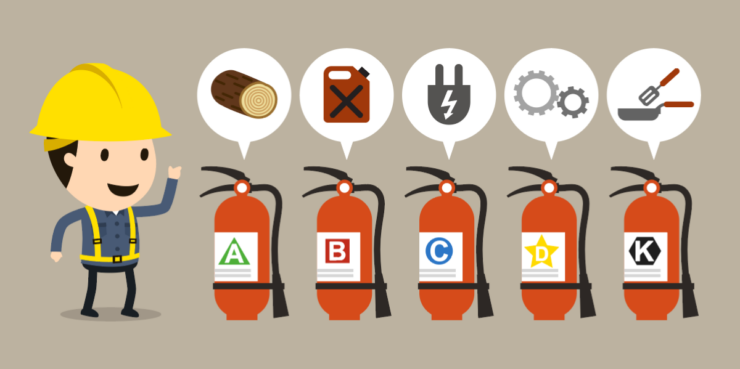
There are four classes of fire. These are as follows:
- Class A Fire: This type of fire involves different ordinary combustibles, including wood, cloth, or paper
- Class B Fire: Class B fires include flammable liquids like oil, gasoline, or grease.
- Class C: This type of fire involves different types of electrical equipment, including appliances, circuit breakers, or wiring.
- Class D: This fire class involves various combustible metals such as magnesium, potassium, or titanium.
Each fire class needs to be extinguished with a specific type of fire extinguisher. For instance, class B fires caused by flammable liquids will need a CO2 or dry chemical extinguisher. On the other hand, class A fires can be dealt with with a regular foam or water extinguisher.
Not using the right type of extinguisher for specific fires will result in ineffectiveness. Besides, in some cases, using the wrong extinguisher can make the fire even worse. Therefore, you must stay extra careful regarding the types of fire extinguishers you have at your workplace.
#2 Understand the Size of Your Office
Depending on the size of your office, you can determine how many fire extinguishers you need and what size each of them needs to be. According to the National Fire Protection Association (NFPA), every 3,000 square feet should be covered with at least one 2A class fire extinguisher.
The final count of fire extinguishers at your office will be determined by the size of the place, the number of floors, and the office layout. You must consult with a safety professional regarding this.
#3 Avoid Toxic Fire Extinguishers
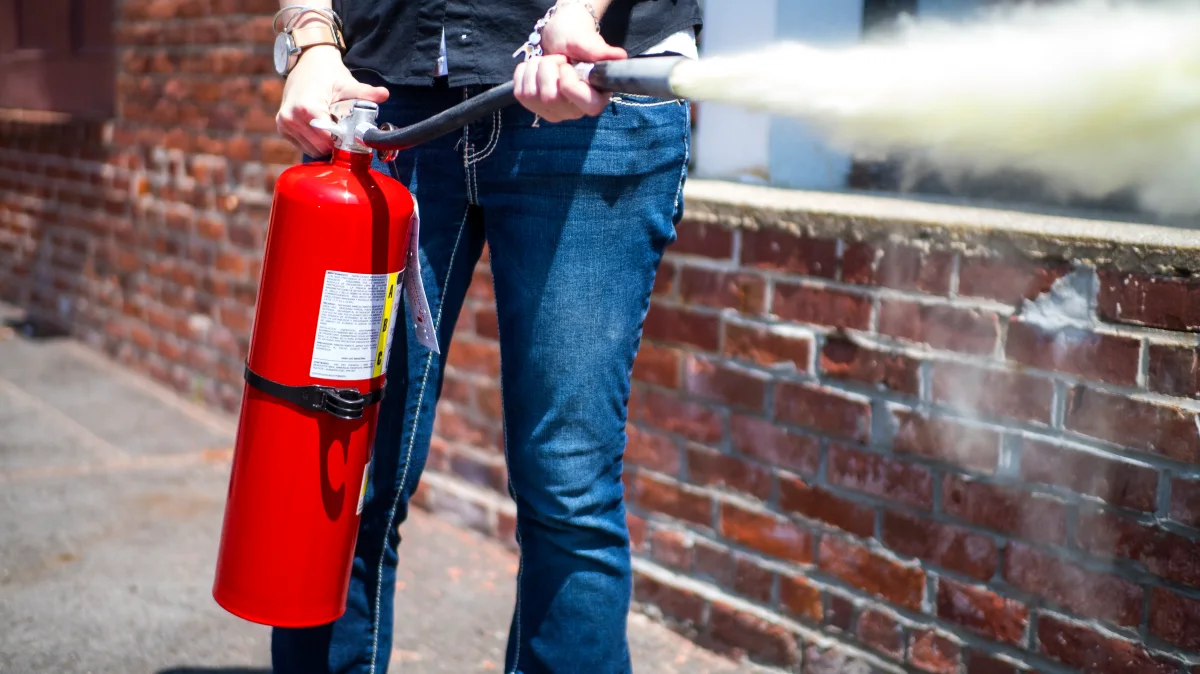
After the Firefighting Foam Cancer Lawsuit revealed that toxic chemicals were found in the AFFF Firefighting Foam, people have been extremely careful about their choice of fire extinguishers. Many developed cancer due to AFFF exposure, and the AFFF lawsuit aims to get these people the justice and compensation they deserve.
The fire extinguisher you plan on using, too, might contain such harmful chemicals, you never know. That’s why you must maintain caution while purchasing such equipment for your office.
Take a close look at the warning labels on the extinguisher. See if the manufacturer mentions the use of any toxic forever chemicals. You can even run a background check by inquiring about the provider’s reputation online.
#4 Consider the Types of Possible Hazards in Your Workplace
When you plan on buying fire extinguishers for your office, you must also consider the types of fire hazards there.
For instance, if you run an office that’s full of paper or paper material, you’re dealing with a possible class-A fire. On the other hand, if your workplace is an industrial workshop of sorts that uses gasoline, you’re probably going to have to deal with a class-B fire.
Since they all need different types of extinguishers, you have to plan and buy them accordingly. You might have to buy different types of extinguishers because of the different types of fire hazards at your workplace.
Some fires, like class C fires, are common because of malfunctioning electrical appliances or faulty wiring. Therefore, this type of extinguisher needs to be there at all workplaces, irrespective of the industry they operate in.
#5 Check Local Regulations for Compliance
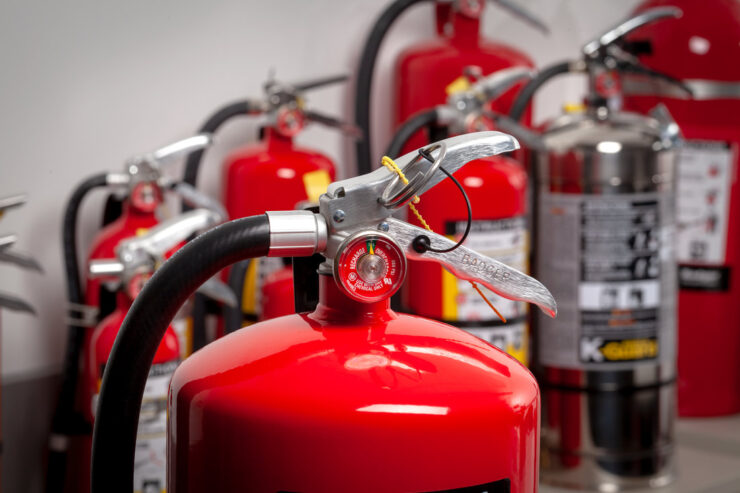
Different states and municipalities have different regulations when it comes to fire extinguishers. These regulations may cover things like what type of extinguishers you should have, how often they must be inspected, how to best maintain them, where to place the extinguishers, and so on. Since you’re operating within state jurisdiction, you must comply with these regulations.
Compliance is mandatory as it will help you prepare yourself and your office for all sorts of fire emergencies.
#6 How to Choose the Right Type of Fire Extinguisher
There are five types of fire extinguishers that work very differently from one another when it comes to dealing with fires. These are as follows.
- Water-based extinguishers: These extinguishers deal with Class A fires. They are not designed to deal with electrical or flammable liquid fires.
- Foam-based extinguishers: These extinguishers work on Class A and B fires. They can’t put out electrical fires.
- CO2-based extinguishers: CO2 extinguishers are for Class B and C fires.
- Dry chemical extinguishers: These chemical-based extinguishers are used in the case of Class A, B, and C fires. They are not to be used in the case of combustible metal fires.
- Class K fire extinguishers: These extinguishers are for kitchen fires that involve oil and grease.
Choose the extinguishers for your workplace based on the type of possible fire hazard.
Creating a Fire Emergency Plan for Your Workplace
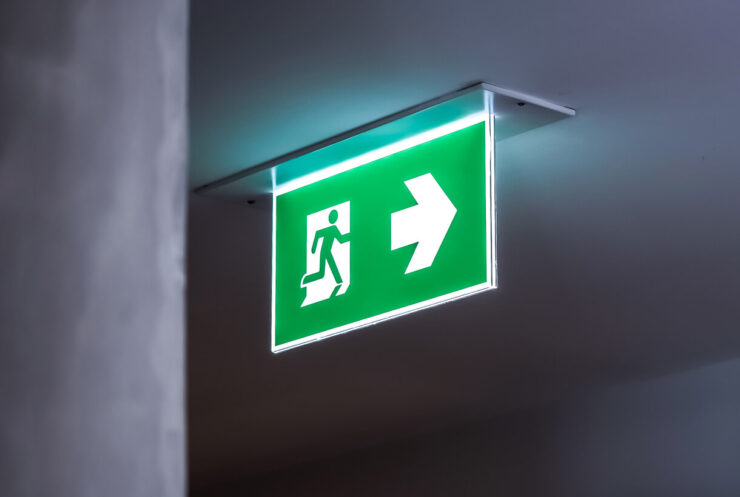
A fire emergency plan is an essential component of workplace safety. It helps to ensure that employees know what to do in case of a fire, and can help minimize damage and injuries. Here are some important steps to consider when creating a fire emergency plan for your workplace:
- Assess the Risks: The first step in creating a fire emergency plan is to identify potential risks in your workplace. This may include flammable materials, electrical equipment, or other hazards that could increase the risk of a fire.
- Develop Procedures: Once you have identified potential risks, develop procedures for responding to a fire emergency. This should include evacuation routes, designated meeting places outside the building, and instructions on how to use fire extinguishers.
- Train Employees: All employees should receive training on the fire emergency plan and be familiar with evacuation procedures. Regular drills should be conducted to ensure that everyone knows what to do in case of a real emergency.
- Install Fire Safety Equipment: Ensure that your workplace is equipped with appropriate fire safety equipment such as smoke detectors, sprinkler systems, and fire extinguishers.
- Regularly Review and Update the Plan: As your workplace changes or grows, it’s important to regularly review and update the fire emergency plan accordingly.
Remember the points discussed above when buying fire extinguishers for your workplace or even your house. By doing so, you will be well prepared for any type of fire emergency that may arise.

